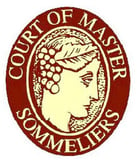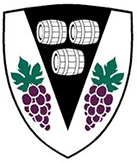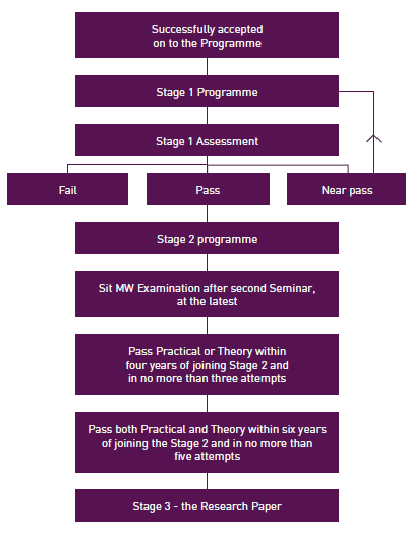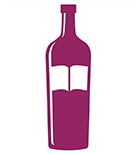Wine is a specialist industry. To work with wine, you need to understand the vocabulary. And to understand the vocabulary, you need to understand the processes behind winemaking.
Whatever industry you work in, there are always benefits for attaining relevant qualifications. With wine qualifications, you have the bonus of getting to taste extraordinary wines (for ‘learning’ purposes, of course…). A qualification will also set you apart from amateur practitioners – wine bloggers and the like.

Depending on your career goals and your interests, there are four main wine certification courses that professionals in the wine industry can benefit from gaining. Each certification offers something different, and each has different requirements for potential students. Most of the following accreditations require you to achieve at least 75% on your tests; most of the certificates are exam-based.
Let’s have a look at the big four.
Court of Master Sommeliers
|

The Court of Master Sommeliers (CMS) is one of the most prestigious accrediting bodies for wine professionals worldwide. This program requires less ‘class’ time than other wine courses, but the flipside of this is you will be expected to have a lot of pre-existing knowledge. This is an industry, rather than an academic, qualification, so there is also a stronger emphasis on service with the CMS.
|
The Court of Master Sommeliers offers a graduated certification pathway, consisting of four steps. You can only progress to the next stage of certification if you have successfully passed the earlier levels.
The four stages are: Introductory Sommelier Certificate (a three-day course), Certified Sommelier Examination (a one-day exam), Advanced Sommelier Certificate (a five-day course), and the Master Sommelier Diploma. Although the Diploma has been offered since the late 1960s, there are only around 200 Master Sommeliers worldwide. To achieve this final certification is to prove yourself at the absolute peak of your profession, and an expert among your peers.
This trailer for the documentary Somm should give you some idea of what is involved – it follows a group of sommeliers attempting the Court of Master Sommeliers exam.
Wine and Spirits Education Trust
|
 The Wine and Spirits Education Trust (WSET) provides the broadest and most widely available certified wine education worldwide. There are multiple tiers for students to choose from, and options to complete the course online. This is beneficial, as online learning can be a great benefit to adult learners, especially if you wish to work while studying. The Wine and Spirits Education Trust (WSET) provides the broadest and most widely available certified wine education worldwide. There are multiple tiers for students to choose from, and options to complete the course online. This is beneficial, as online learning can be a great benefit to adult learners, especially if you wish to work while studying.
|
The Wine and Spirits Education Trust (WSET) provides the broadest and most widely available certified wine education worldwide. There are multiple tiers for students to choose from, and options to complete the course online. This is beneficial, as online learning can be a great benefit to adult learners, especially if you wish to continue working while studying.
WSET strongly focuses on wine knowledge and a theoretical understanding of the wine industry. There is less time spent on the practical aspects, such as service or restaurant work. There are four levels, which increase in depth and complexity as you progress. This program is popular with wine writers and those who want to understand the science and processes behind winemaking, rather than wine service.
The WSET courses are offered in multiple languages, which means they are recognised around the globe. The WSET courses are well respected, and can satisfy the pre-requisite study requirements for other certificates, such as the Master of Wine (below).
Institute of the Masters of Wine
|

To enrol in the Master of Wine course, you need to already hold another certification. The Institute specifically references WSET as a desirable pre-requisite for the Master’s. The course offered by the Institute of the Masters of Wine is self-directed, so you must be a dedicated, independent learner. The coursework includes a mix of seminars, assessments, research
and examinations.
|
It is a rigorous program, and more academically inclined than the other certificates. It encompasses knowledge of the entire wine industry – science, viticulture, marketing, wine trends and so on.
This is a popular choice for wine writers and winemakers, and is not necessarily recommended for sommeliers, as there is little focus on service. It is also a lengthy process, with multiple stages requiring completion. Beyond the assignments and exam, you will also need to complete a research paper to a satisfactory standard.

Society of Wine Educators
|

There are a few different certifications available through the Society of Wine Educators, but the two most relevant are: Certified Wine Specialist and Certified Wine Educator. These two qualifications are exam-based, with self-directed or online learning modules for preparation.
|
The Certified Wine Specialist exam consists of 100 multiple-choice questions, with all the answers drawn from the Society’s study guide. Every person who registers to sit the exam receives a copy of the study guide.
Wine Educators are tested on their wine knowledge, as well as their ability to communicate that knowledge to different audiences. The Wine Educator exam is more complex than the Wine Specialist test, and consists of five different sections.
Still Not Sure?
It’s a lot to take in all at once. The Napa Valley Wine Academy has put together a quick quiz to help you sort out all the information. It asks you about your interests and goals, and then spits out the wine certification they think would suit your needs. Pretty neat!
A local or national sommeliers’ society, such as Sommeliers Australia, should be able to offer you guidance about suitable pathways, too.
You might also like